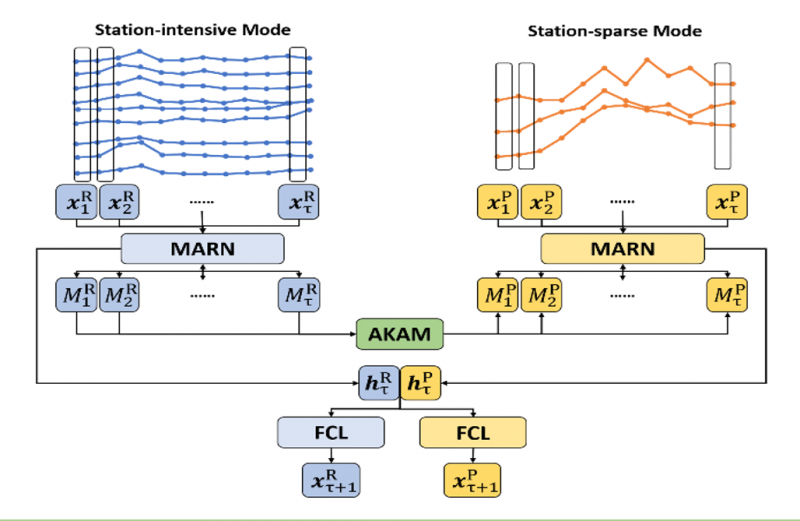Multimodal Demand Forecasting

Travel demand forecasting is useful for both trip and service planning. Most existing studies focus on demand forecasting for a single mode, paying less attention to multimodal demand forecasting. Our research develops a multimodal demand forecasting approach, which can learn and utilize information/knowledge from different public transit modes. This improves the demand prediction of the travel mode with sparse observations (e.g., station-sparse mode). In particular, our focus is on improving the passenger demand prediction accuracy of the station-sparse mode(s) with the help of the station-intensive mode (i.e. the mode with more sufficient knowledge and intensive station distribution over space).
A novel Knowledge Adaptation with Attentive Multi-task Memory Network (KA2M2) as shown in the figure, utilize closely-related demand patterns from the station-intensive mode for demand forecasting of the station-sparse mode(s). The experimental results on a real-world dataset collected from the Greater Sydney area covering four public transport modes (bus, train, light rail, and ferry) demonstrate that the proposed approach consistently outperforms a number of baseline methods and state-of-the-art models.
Paper: Li, C., Bai, L., Liu, W., Yao, L., & Waller, S. T. (2021). A multi-task memory network with knowledge adaptation for multimodal demand forecasting. Transportation Research Part C: Emerging Technologies, 131, 103352. doi:10.1016/j.trc.2021.103352For more information
Li Can - can.li4@student.unsw.edu.au
Assoc Prof Lina Yao - lina.yao@unsw.edu.au
Dr Wei Liu- wei.liu@unsw.edu.au
Prof S. Travis Waller - s.waller@unsw.edu.au




